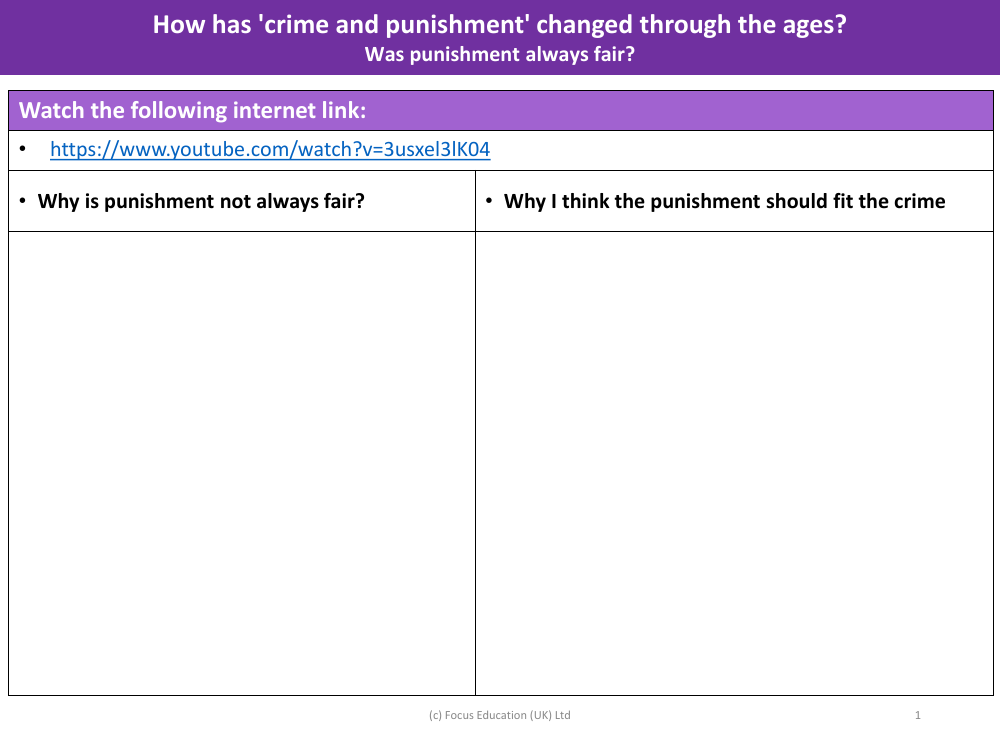Was punishment always fair? - explanation task - Worksheet

History Resource Description
The concept of fairness in punishment is a complex issue that has evolved over time. It is not always guaranteed that punishment is fair, as it can be influenced by various factors such as societal norms, the legal system in place, and individual biases. The idea that punishment should fit the crime is rooted in the principle of proportionality, suggesting that the severity of the penalty should correspond to the seriousness of the offence. This principle aims to ensure justice and deterrence while avoiding excessively harsh or lenient punishments. However, throughout history, the application of this principle has not always been consistent or equitable, leading to debates about what constitutes a fair punishment.
The evolution of 'crime and punishment' through the ages reflects changes in societal values, legal frameworks, and philosophies of justice. In some historical periods, punishments were often harsh and public, designed more for retribution or deterrence than rehabilitation. Over time, with the development of human rights and a better understanding of the causes of criminal behaviour, there has been a shift towards more measured and rehabilitative approaches. This worksheet encourages reflection on the fairness of punishments and the importance of ensuring that penalties are appropriate to the crimes committed, prompting a deeper consideration of how justice has been administered in the past and how it continues to change.




